This post may contain affiliate links. Please read our disclosure policy.
How to make British tea, the “proper” way. Pull together the perfect cup of English tea using loose leaves or tea bags with a kettle or the stove, in a mug or a teapot! Plus, top tips and FAQs!
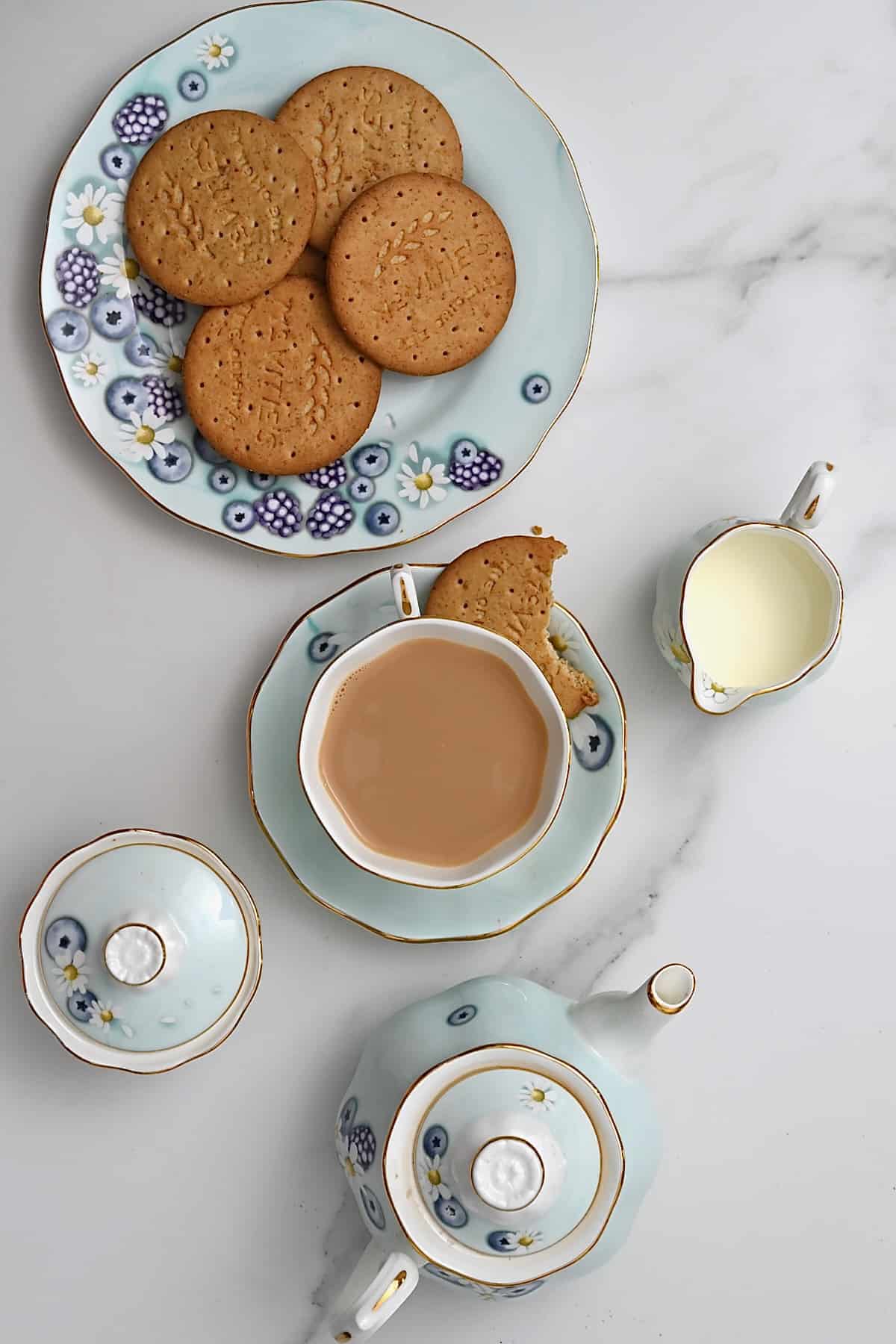
In the summer of 2020 Brits everywhere were shocked to the core when an American took to TikTok to share how to make British tea in a way that blatantly disregarded every unspoken “rule” for proper English tea making (and that is taken seriously in the UK!). Even I, as a non-Brit living in the UK, shuddered. I mean, a microwave?! Half a mug’s worth of milk?! I know it’s called British MILK tea but… no thank you!
Tea drinking is ingrained in the culture here in England and the entire UK. Put the items in your teacup in the wrong order or *gasp* use a microwave and you’ll be starting arguments to last years. So, I thought I’d share how to make British tea the “proper” way!
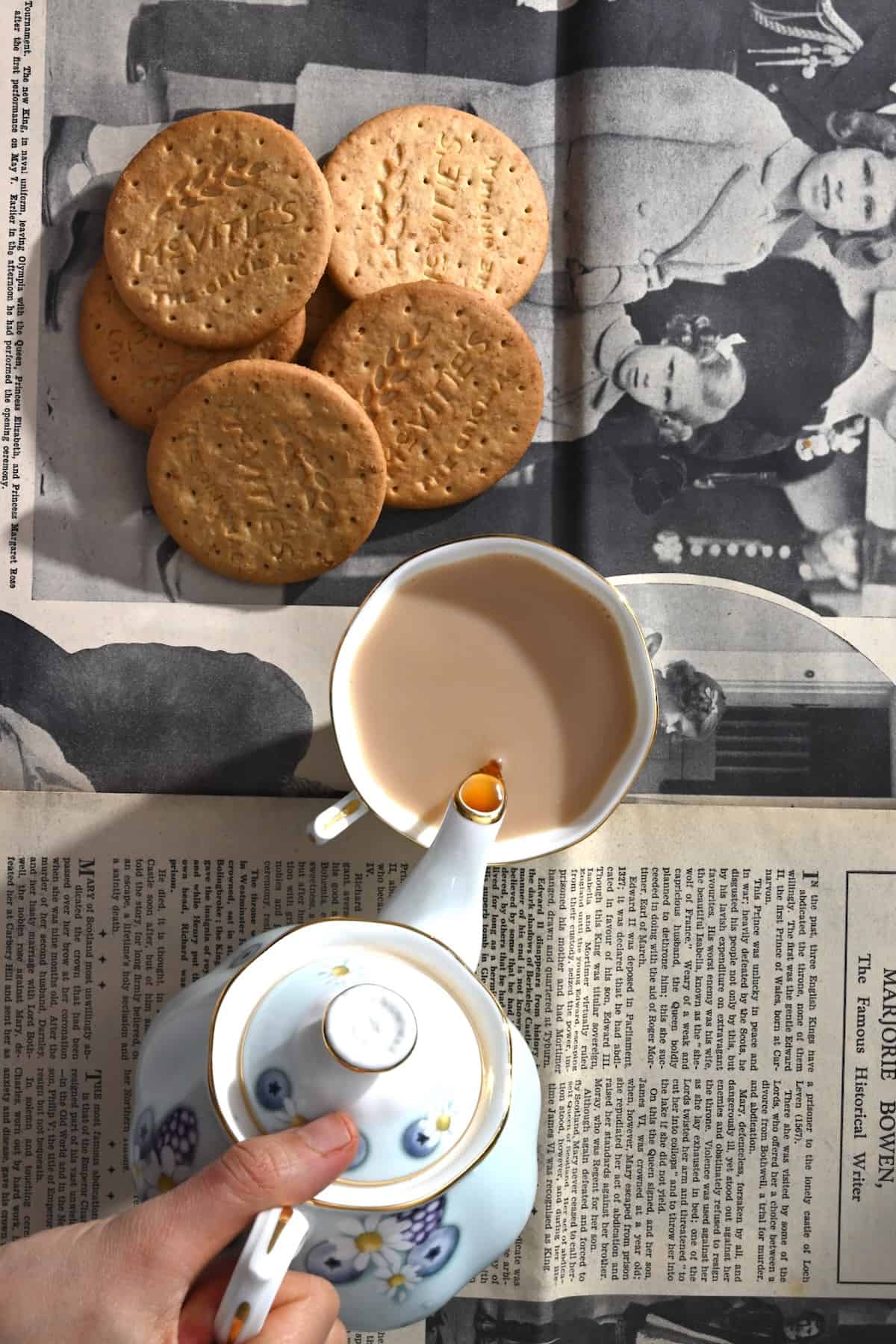
The process is completely second-nature to those who have been doing it for years. But there are actually several important rules and guidelines for making a proper cup of English tea.
For example, steep the tea for too long, it’ll become bitter. Use water that’s too hot, it’ll be bitter. Use too much milk, it’ll be flavorless AND lukewarm. So, it’s not as simple as you might think!
However, keep reading below for how to make milk tea with a tea bag or loose leaf tea, on the stove or with a kettle, in a teapot or mug. Ultimately, how to make tea like the British do (i.e. the perfect cup of tea)!
Want to save this recipe?
The Recipe Ingredients
When learning how to make English tea, you just need 3 ingredients (plus water).
- Black tea: there are plenty of types of black tea to choose from. However, here in the UK, there are a few standout popular options of robust black teas, including English breakfast tea and Earl Grey. Use tea bags or loose tea (either loose or in sachets). The latter tends to be of higher quality.
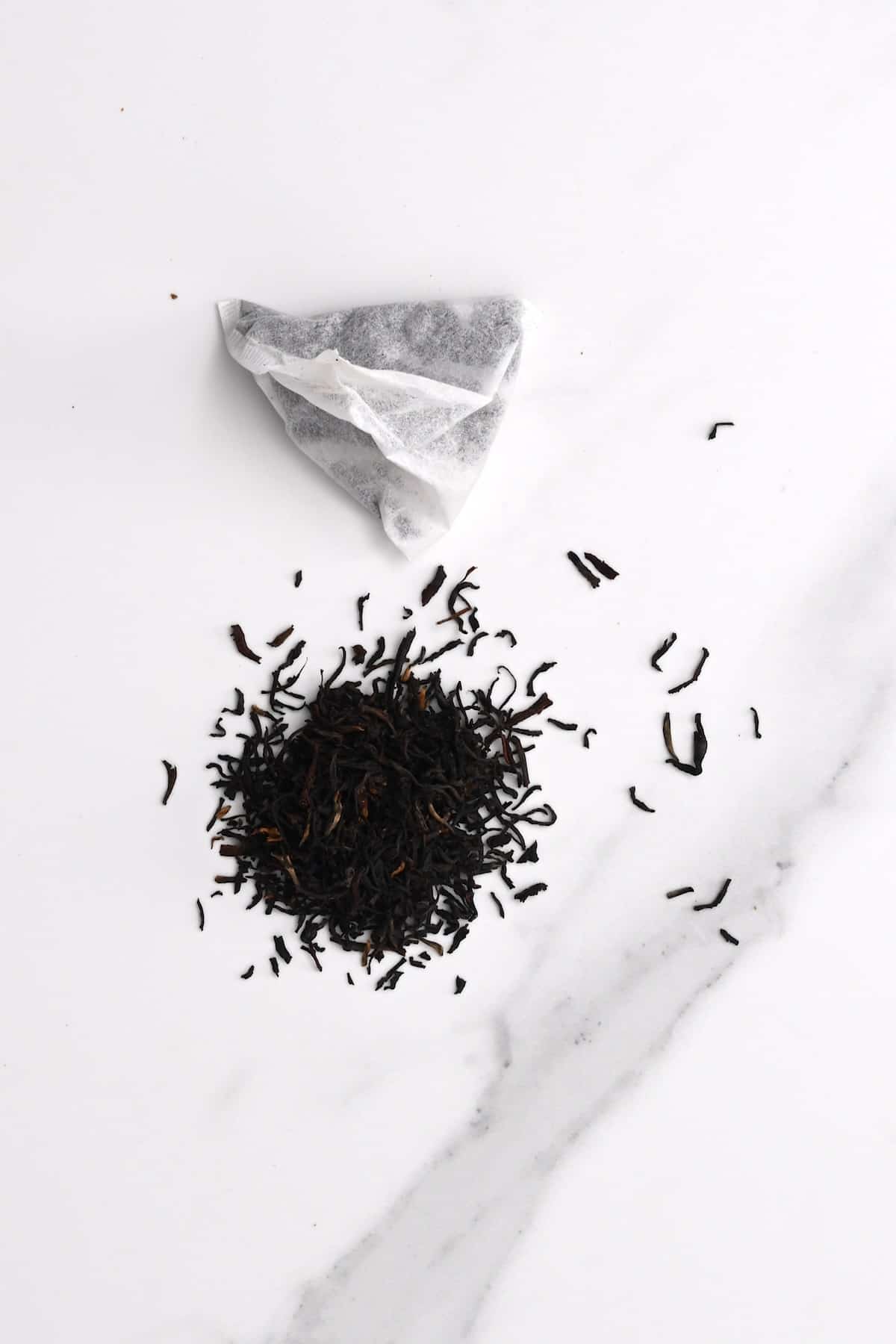
There are several popular brands of tea, including PG Tips, Twinings, Yorkshire tea, and Tetley tea. In terms of what is the “best” one, it comes down to personal taste.
- Milk: use your desired fat level of milk (whole, semi-skimmed, skimmed). You can also use certain dairy-free milks, but be careful as some will separate in hot liquids.
- Water: to make up the base of the British tea.
- Sweetener (optional): typically, granulated white sugar is used. However, you can use brown sugar, honey, or even a sugar-free sweetener like stevia or erythritol.
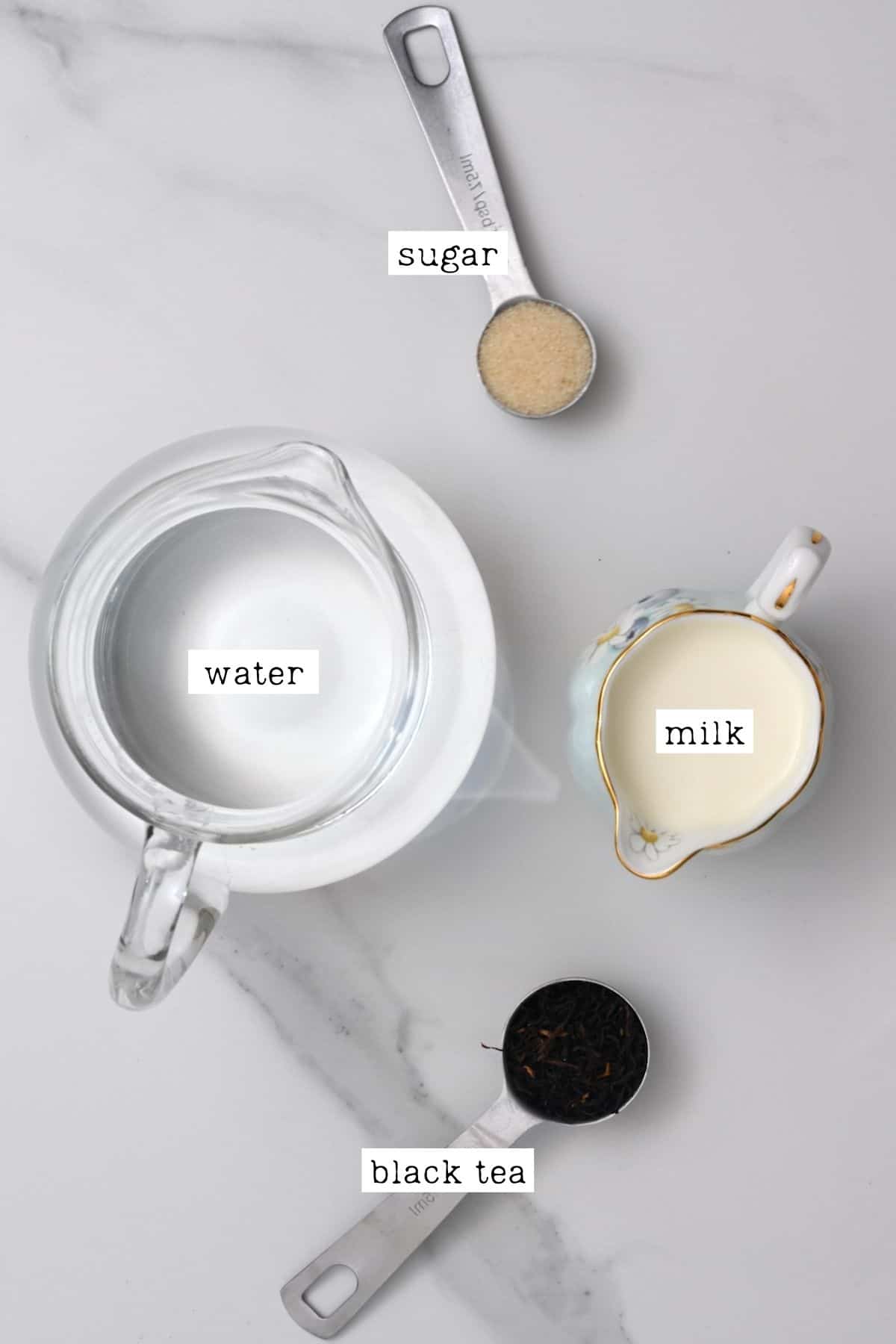
How to Make British Tea?
Below I’ll take you through how to make milk tea with a tea bag or loose tea leaves as well as how to make tea on the stove or with a kettle. Plus, making it for cups/mugs or for a teapot!
The Tea to Water Ratio
Use either one tea bag or 1/2 tablespoon of loose tea per cup of water (around 2g loose tea per 8oz/225ml water).
If you’re making a teapot of tea, most brits usually add in an extra tea bag/spoonful, too.
If you’re using loose tea leaves, you’ll need an external strainer or internal diffuser. Alternatively, you can purchase empty tea bags or even cut some muslin cloth into a small pouch (as I did for this peach iced tea recipe).
Step 1: Heat the Water
Unlike what many believe, it’s actually not best to boil the water when making tea. In fact, most types of tea come with an ideal temperature on their packaging based on the type of tea inside. Black tea is one of the only types that can handle the highest temperatures of around 203ºF/95ºC, up to boiling point 212ºF/100ºC.
I prefer to make mine at just below boiling, so it’s hot enough to extract as much flavor from the tea without risking scalding it and ending up with a bitter brew.
Heat the water either in a kettle (using one with temperature controls is a bonus) or on the stovetop until just below boiling point. Use a thermometer if you have one.
Step 2: Steep the Tea
You can prepare proper English tea either with a tea bag or loose leaves in an infuser/strainer. Place these in your cup/s before adding the water.
Pour the hot water over the tea (don’t fill it to the top and you need space for the milk) and then leave it too steep for between 3-5 minutes based on how strong you want the tea to be.
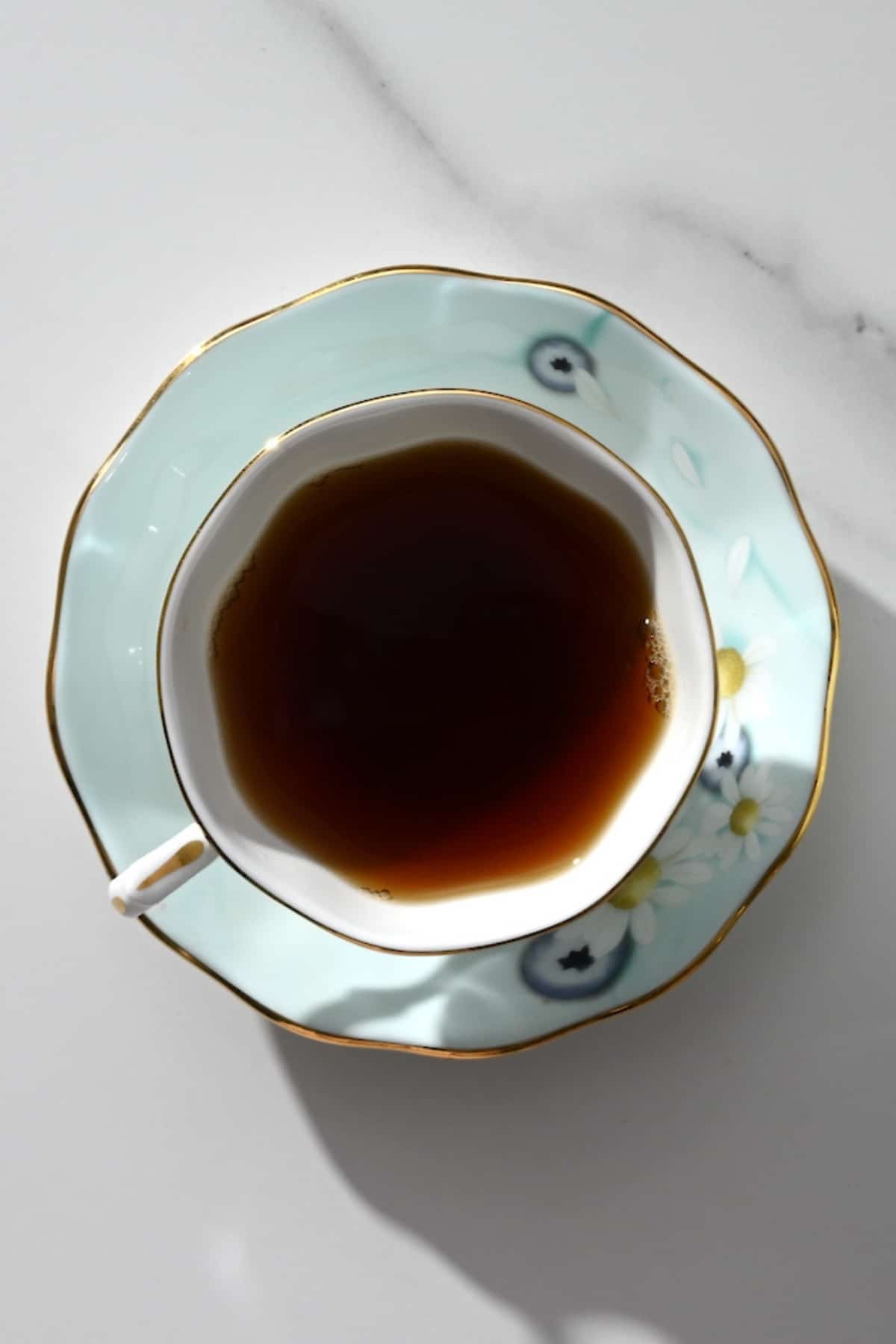
It’s recommended that you don’t mix it too much or squeeze/press the tea bag, as this can make for a more bitter tea as it releases extra bitter tannins. Instead, leave it be for the duration of the steeping.
Step 3: The Finishing Touches
Next, add the sugar/sweetener (optional) to the cup/s and stir well until it’s dissolved.
Finally, add the milk, starting with just a splash and increasing to taste.
The amount of milk to add is once again down to personal taste. Start with a small splash (about 1 teaspoon) and increase to taste. Soon you’ll know by color when you’ve reached your personal milk tea “sweet spot” – no one ever measures.
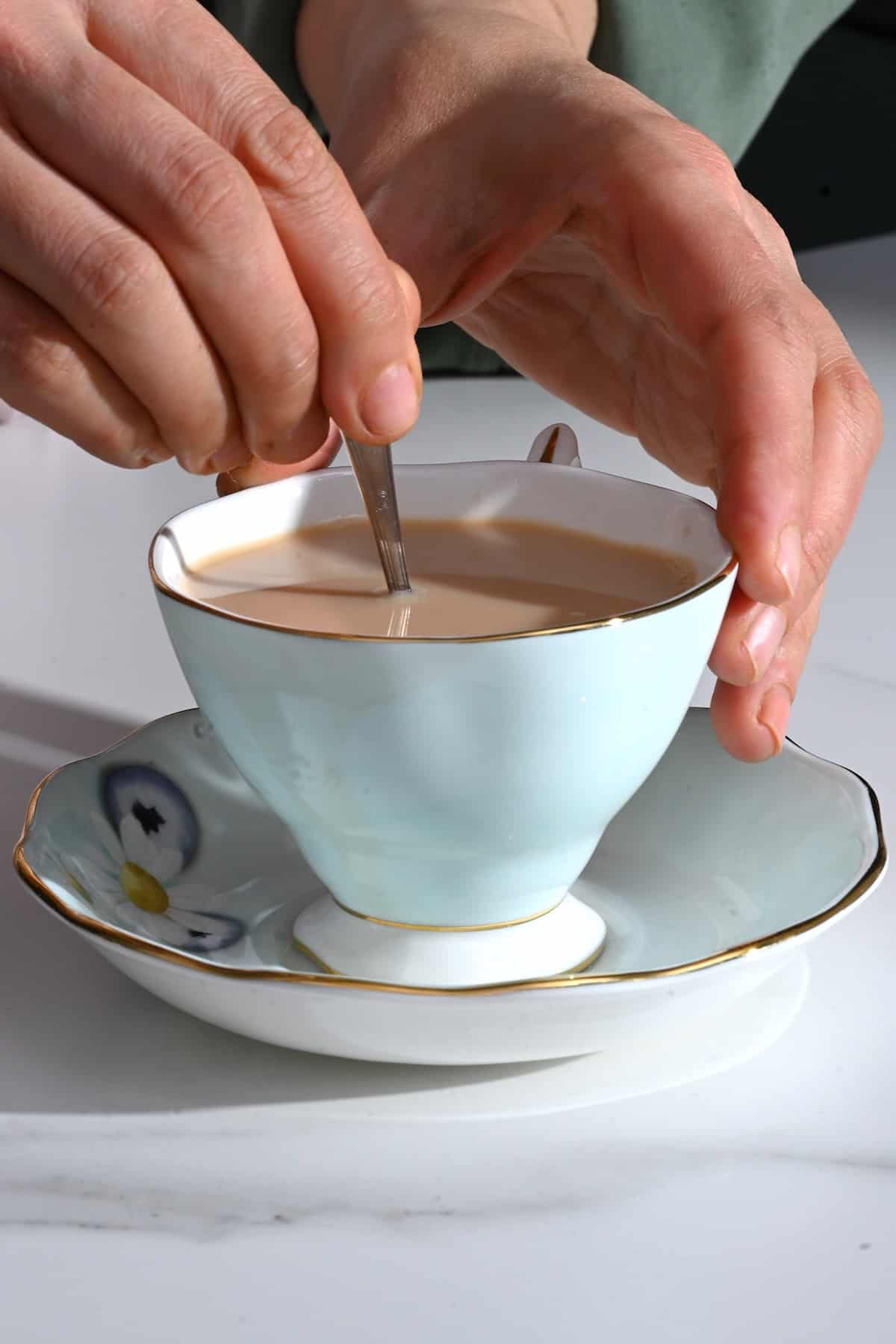
In a Teapot
A regular teapot requires 2 or 3 tea bags (for 6-8 cups of tea), whereas a mini teapot only requires one (for 2-3 cups of tea).
Add the tea to the teapot and pour the water over, allowing it 4-5 minutes to brew.
Then, remove the tea bag/leaves from the teapot and pour the tea into the teacups. Add the milk and sugar, and enjoy your proper English tea!
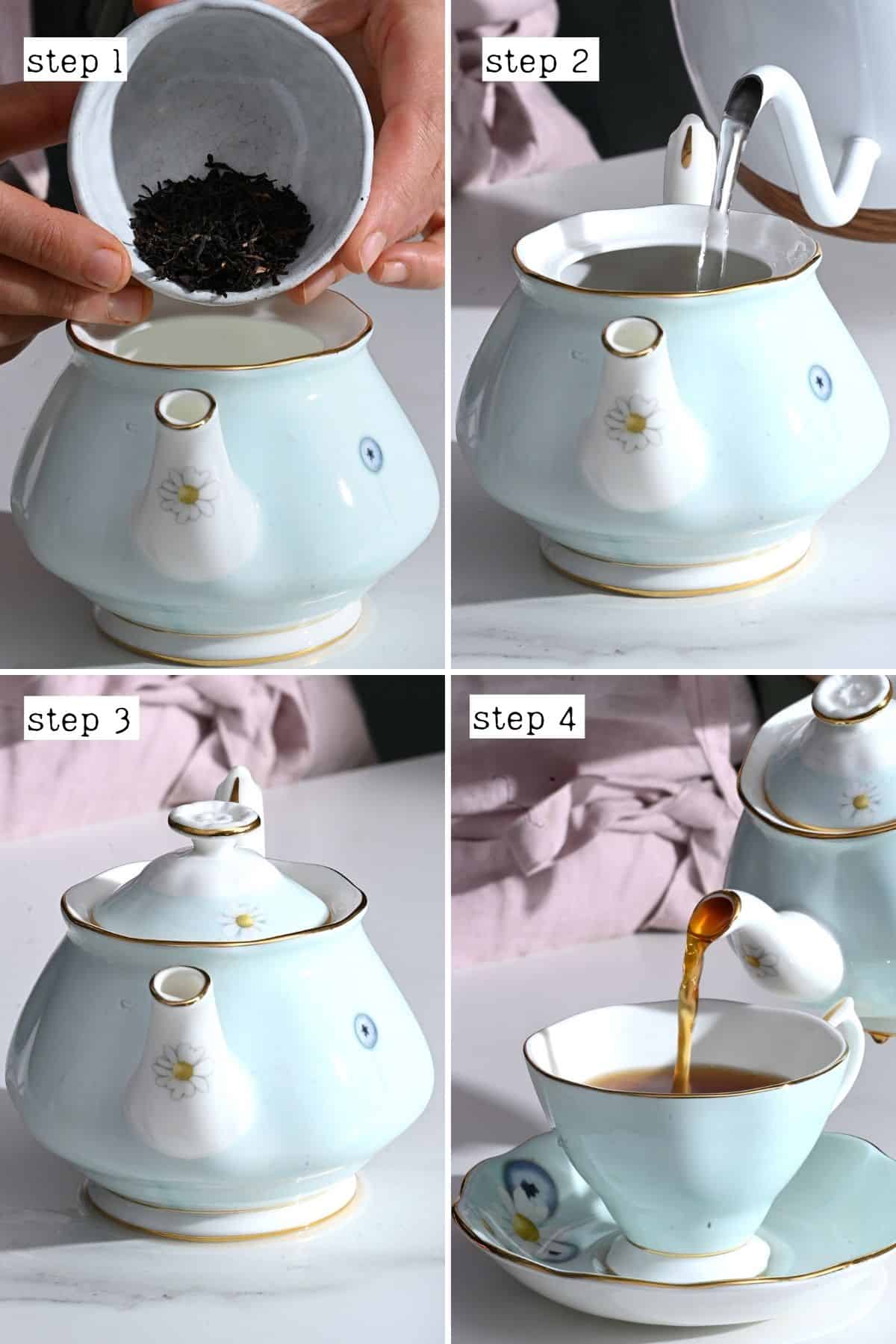
It’s best to warm up the teapot in advance. To do so, boil some water and pour it into the pot, swirling it around for a minute or two. Then discard the water.
Next, pour the tea into the pot and this should keep it warmer for longer. You could also use a tea cosy (or a tea towel) to cover the pot and hold in the warmth of the traditional English tea.
How to Serve British Milk Tea?
It wouldn’t be teatime without a staple teatime treat. While this isn’t always the case, most of the time British tea is accompanied by either biscuits (such as a rich tea biscuit, digestives, Hob Nob, bourbons, etc.), a hot cross bun, scone, or quick bread like teabread or banana bread or even a slice of cake.
You can also enjoy British tea as part of an afternoon tea with finger sandwiches alongside scones with clotted cream and baked treats.
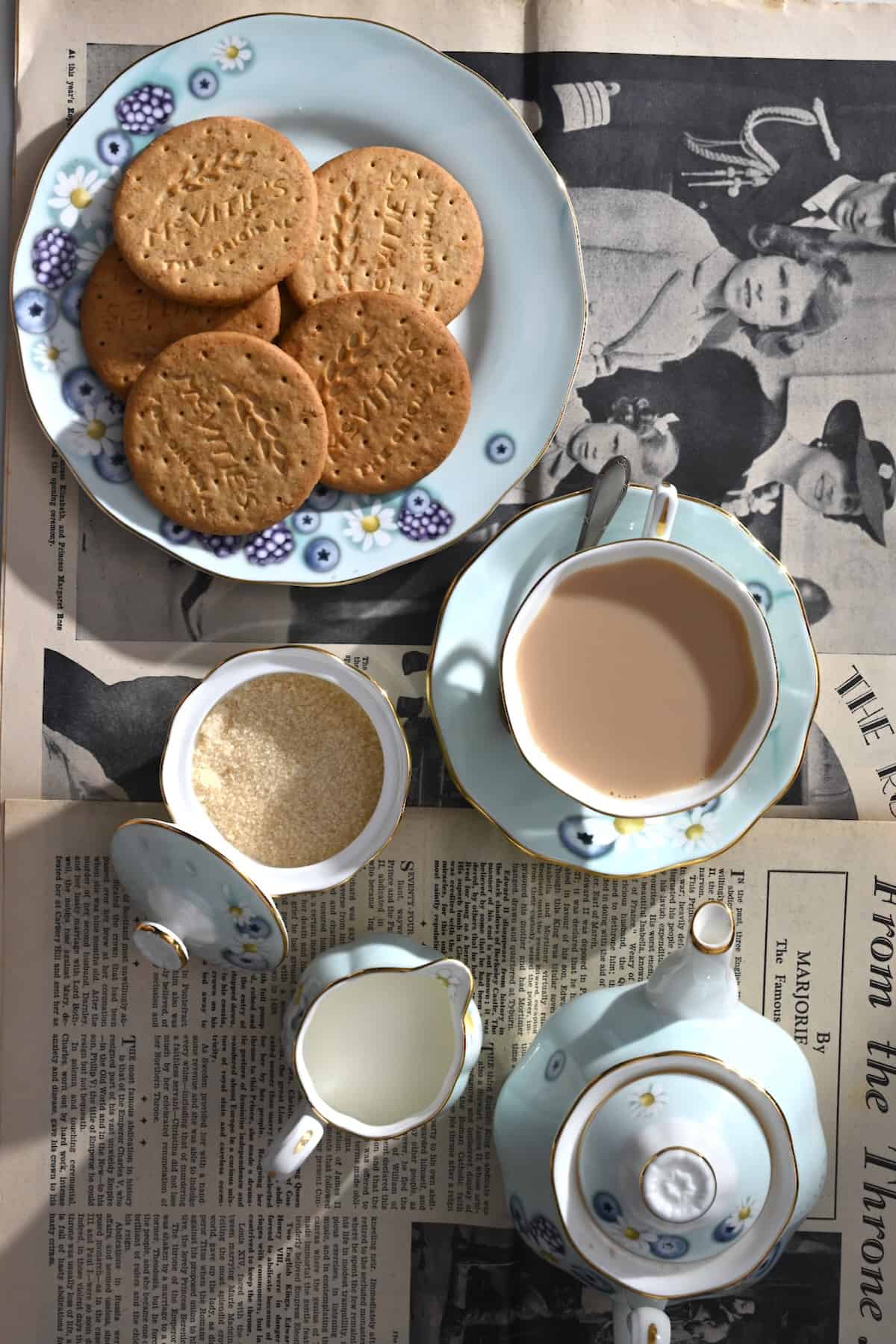
FAQs
Milk tea is essentially any tea that contains milk. This can include a matcha latte, Masala Chai, Thai tea, bubble tea, etc. In this case, we’re referring to the classic combination of black tea with milk.
Bubble tea is milk tea with the addition of boba (aka tapioca pearls) and is consumed warm or iced.
Always pour the tea in first (TIF)! I refuse to listen to anyone who says otherwise. In my opinion, adding the milk first (MIF) is a bit like buttering your plate then pressing your bread into it when you want a piece of buttered bread.
By preparing it TIF, you’re able to properly melt the sugar before adding the milk and it won’t interfere with the brewing process. You also have more control over how much milk is added to reach your desired flavor.
Most tea has a steep time of between 2-5 minutes. For black tea, it’s usually 3-5 minutes based on how strong you prefer your cuppa.
Yes, in fact, it contains more caffeine than British afternoon tea and most American black tea. However, there are also decaf versions available.
While both teas contain a blend of different black teas, they have a distinctly different flavor. English breakfast tea is full-bodied and robust like Earl Grey. However, the addition of bergamot oil to Earl Grey makes for a noticeable bergamot note of flavor.
While this isn’t typical (especially when using cheap tea bags), it is possible. Make sure to allow the teabags to drip dry and use only 1-2 times further. The flavor will lessen each time it’s reused.
8 Top Tips For The Perfect Cuppa
- Adjust the sweetness: this comes down to personal preference. I think the average is two teaspoons of sugar per cup of tea, but I use one. Some use none.
- English vs. American tea: compared to most American brands, British tea is more robust in flavor and usually contains more caffeine. Keep this in mind when deciding how long to steep it for and how much milk to add.
- Adjust the steep length: most British black tea (including Earl grey and English breakfast tea) have a recommended steeping time of 3-5 minutes. If you prefer a weaker tea, choose the former. For a stronger tea, choose the latter.
Be careful not to steep it for too long as the tea becomes bitter. If you’ve steeped for the maximum time and it isn’t strong enough, add more tea leaves instead. - Use fresh water: always use freshly drawn cold water for the best flavor (thanks to the extra oxygen in the water).
- Don’t boil the water: instead, pay attention to the tea packaging and follow the temperature recommendations. For black tea, that’s usually 95-100ºC/203-212ºF. It can help if you have a temperature control kettle. If you pour boiling water over the tea, it will scald the leaves and can leave you with bitter traditional English tea.
- Don’t add too much milk: otherwise, you lose the English tea flavor AND affect the temperature of the tea.
- DON’T microwave the water! Just don’t, please. It won’t heat evenly and may affect flavor.
- Don’t double boil kettle water: it will affect the flavor due to the lack of oxygen and will have an effect on the minerals.
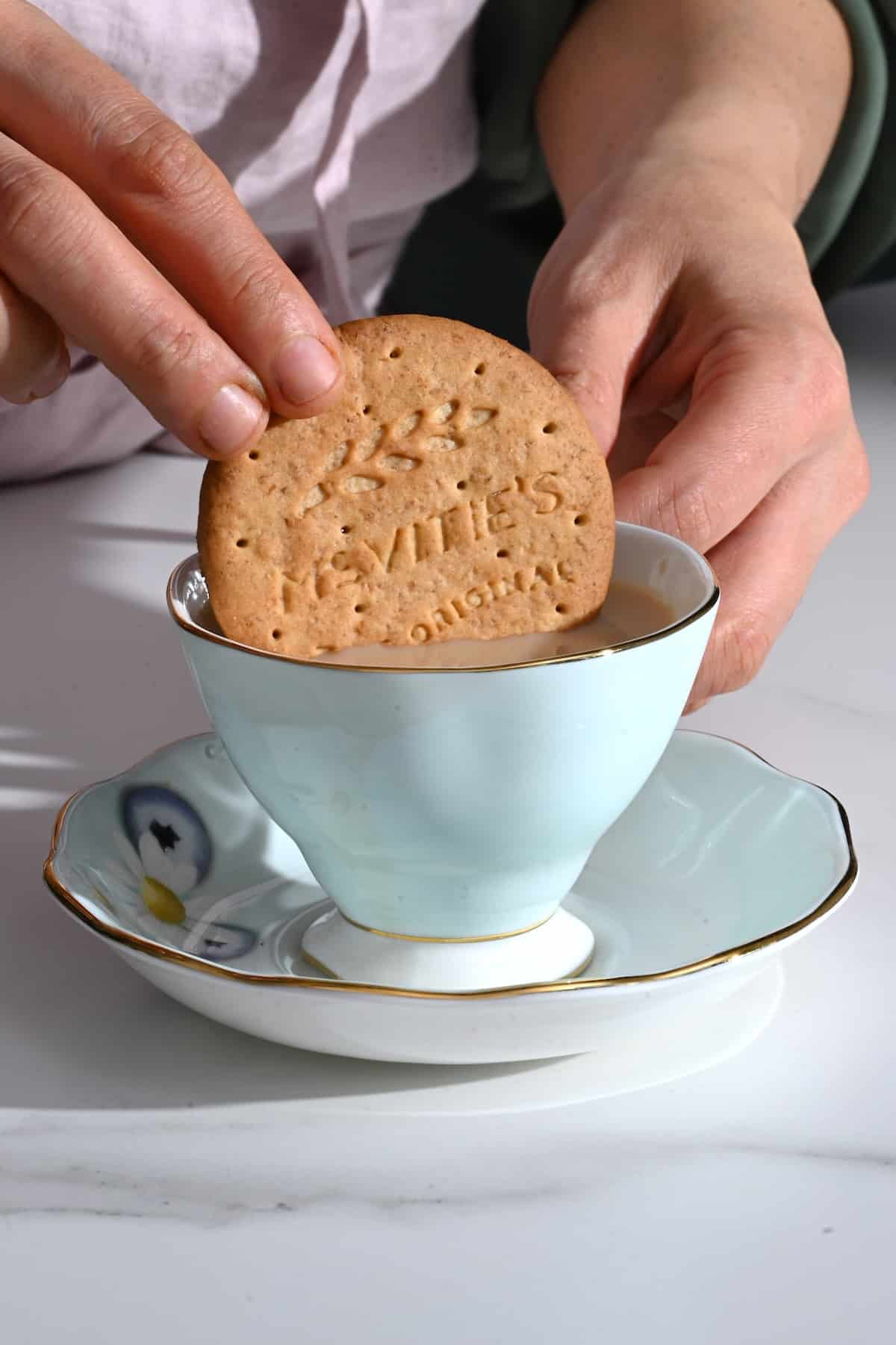
More Tea Recipes
- Fresh mint tea
- Masala chai Recipe
- Turmeric Tea
- Cinnamon tea
- Green tea
- Matcha green tea latte
- Hibiscus Tea
- Chamomile Tea
- How To Make Bubble Tea (Boba Tea | Brown Sugar Milk Tea)
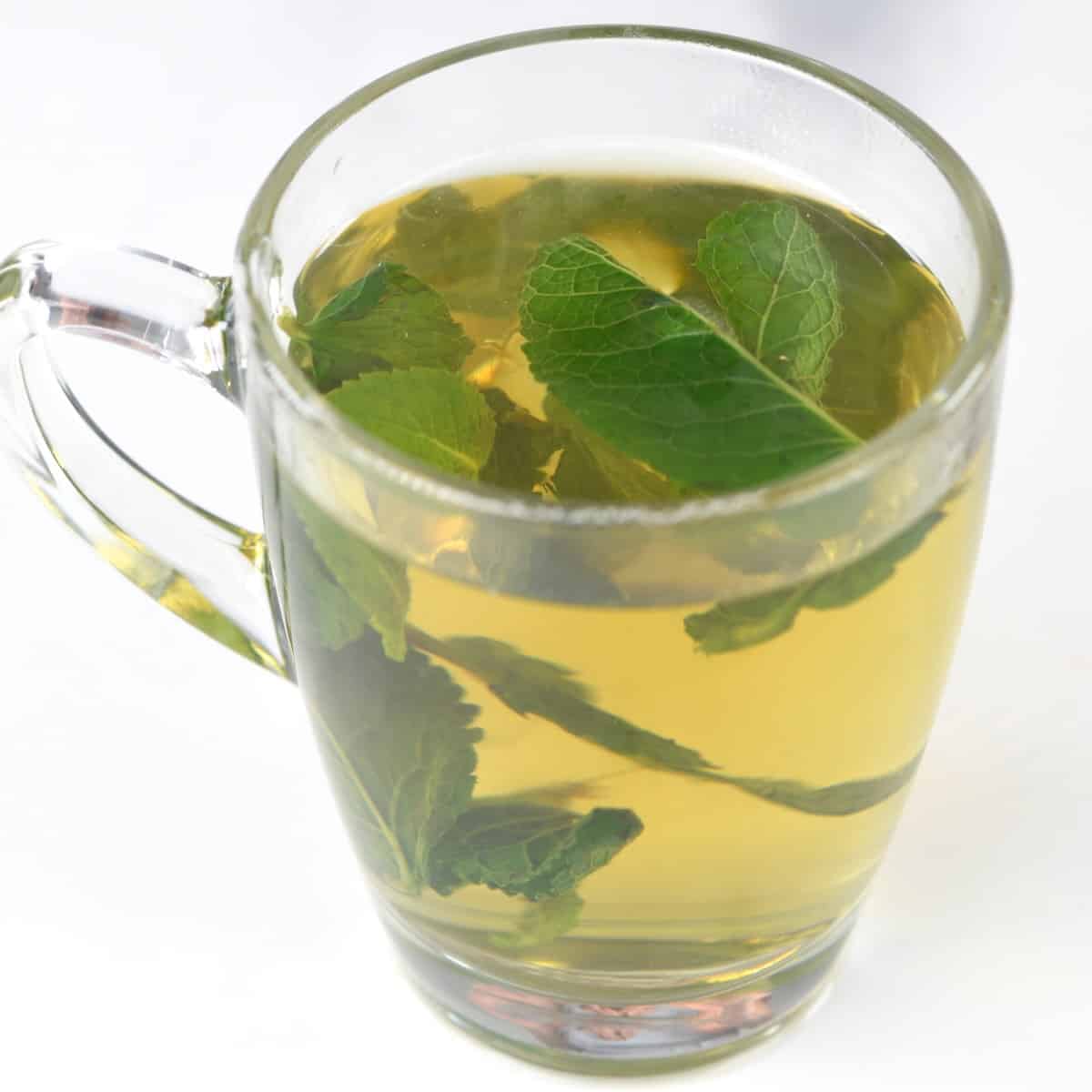
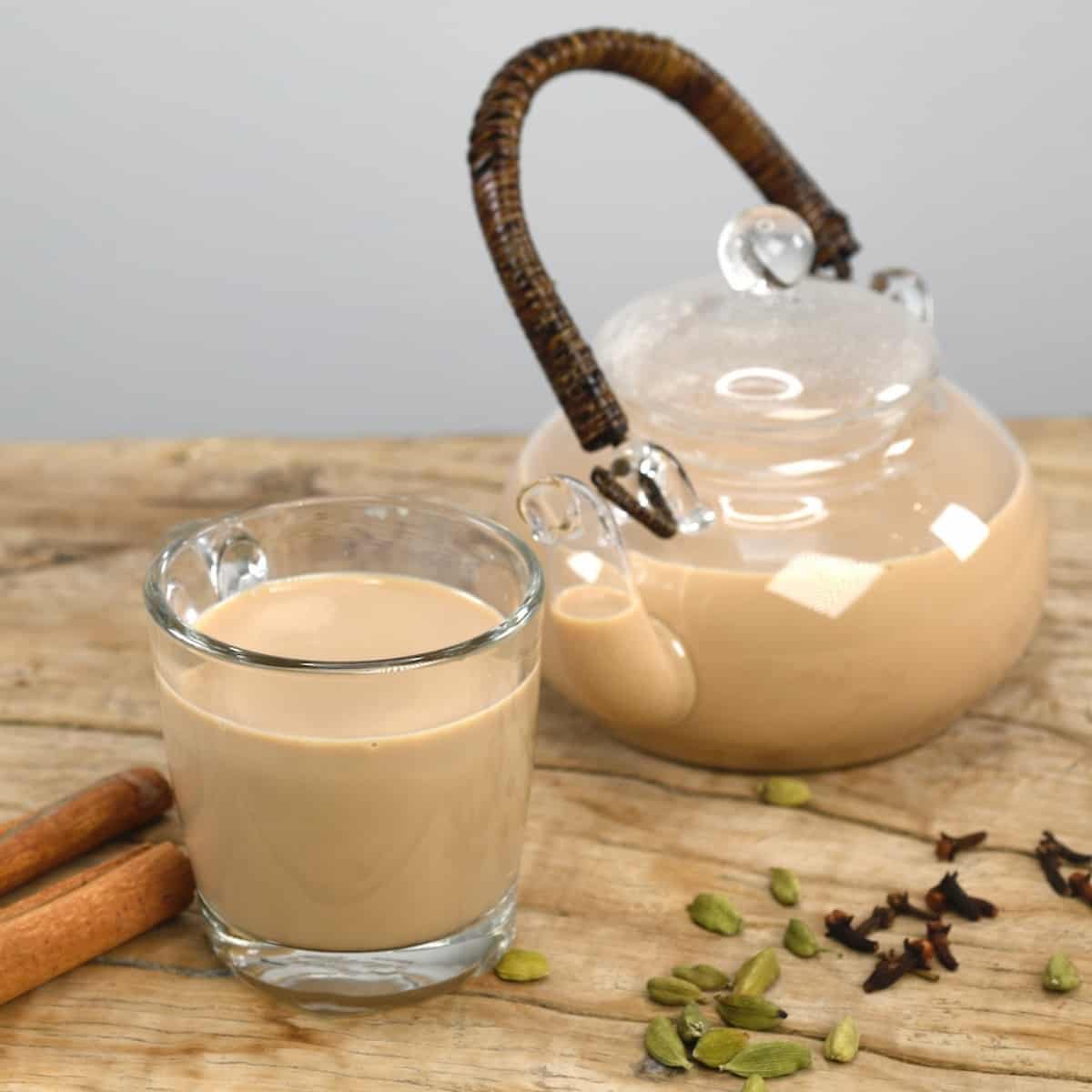
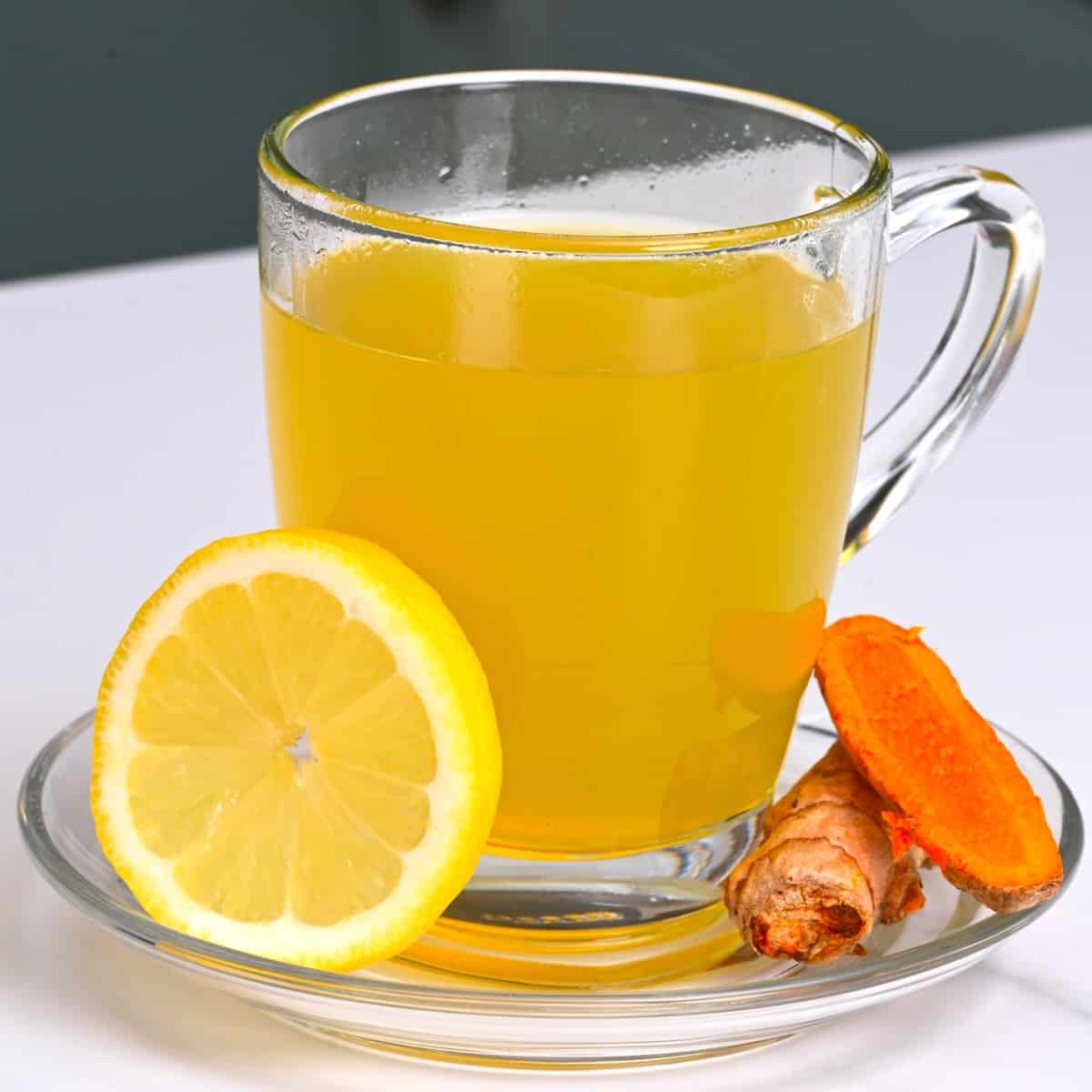
If you try this English tea recipe, I’d love to hear your thoughts and questions below. Also, I’d appreciate a recipe card rating below, and tag me in your recipe recreations on Instagram @Alphafoodie!
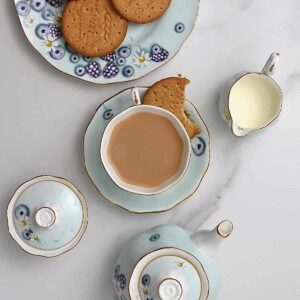
How to Make British Tea (English Milk Tea)
Ingredients
- 2 cups water
- 1 Tbsp black tea i.e., Earl Grey, English Breakfast tea or other British black tea varieties (tea bags or loose leaf tea)
- 2 tsp milk or more to taste; dairy (whole, semi-skimmed, or skimmed) or non-dairy
- 2 tsp sugar or sugar-free sweetener, optional
Use 1 teabag or 1/2 Tbsp (2 grams) loose tea leaves per cup of water (8oz/225 ml water).
Instructions
Step 1: Heat the Water
- Black tea is one of the only types that can handle the highest temperatures of around 203ºF/95ºC, up to boiling point 212ºF/100ºC.I prefer to make mine at just below boiling, so it's hot enough to extract as much flavor from the tea without risking scalding it and ending up with a bitter brew.Heat the water either in a kettle (using one with temperature controls is a bonus) or on the stovetop until just below boiling point. Use a thermometer if you have one.
Step 2: Steep the Tea
- You can prepare proper English tea either with a tea bag or loose leaves in an infuser/strainer. Place these in your cup/s before adding the water.
- Pour the hot water over the tea (don't fill it to the top and you need space for the milk) and then leave it too steep for between 3-5 minutes based on how strong you want the tea to be.It’s recommended that you don’t mix it too much or squeeze/press the tea bag, as this can make for a more bitter tea as it releases extra bitter tannins. Instead, leave it be for the duration of the steeping.
Step 3: The Finishing Touches
- Add the sugar/sweetener (optional) to the cup/s and stir well until it's dissolved.
- Add the milk, starting with just a splash and increasing to taste.The amount of milk to add is once again down to personal taste. Start with a small splash (about 1 teaspoon) and increase to taste. Soon you'll know by color when you've reached your personal milk tea "sweet spot" – no one ever measures.
In a Teapot
- A regular teapot requires 2 or 3 tea bags (for 6-8 cups of tea), whereas a mini teapot only requires one (for 2-3 cups of tea).
- Add the tea to the teapot and pour the water over, allowing it 4-5 minutes to brew.
- Remove the tea bag/leaves from the teapot and pour the tea into the teacups. Add the sugar and milk, and enjoy your proper English tea!It’s best to warm up the teapot in advance. To do so, boil some water and pour it into the pot, swirling it around for a minute or two. Then discard the water. Next, pour the tea into the pot and this should keep it warmer for longer. You could also use a tea cosy (or a tea towel) to cover the pot and hold in the warmth of the traditional English tea.
Notes
- Adjust the sweetness: this comes down to personal preference. I think the average is two teaspoons of sugar per cup of tea, but I use one. Some use none.
- English vs. American tea: compared to most American brands, British tea is more robust in flavor and usually contains more caffeine. Keep this in mind when deciding how long to steep it for and how much milk to add.
- Adjust the steep length: most British black tea (including Earl Grey and English breakfast tea) have a recommended steeping time of 3-5 minutes. If you prefer a weaker tea, choose the former. For a stronger tea, choose the latter. Be careful not to steep it for too long as the tea becomes bitter. If you’ve steeped for the maximum time and it isn’t strong enough, add more tea leaves instead.
- Use fresh water: always use freshly drawn cold water for the best flavor (thanks to the extra oxygen in the water).
- Don’t boil the water: instead, pay attention to the tea packaging and follow the temperature recommendations. For black tea, that’s usually 95-100ºC/203-212ºF. It can help if you have a temperature control kettle. If you pour boiling water over the tea, it will scald the leaves and can leave you with bitter traditional English tea.
- Don’t add too much milk: otherwise, you lose the English tea flavor AND affect the temperature of the tea.
- DON’T microwave the water! Just don’t, please. It won’t heat evenly and may affect flavor.
- Don’t double boil kettle water: it will affect the flavor due to the lack of oxygen and will have an effect on the minerals.
Nutrition
Nutrition information is automatically calculated, so should only be used as an approximation.
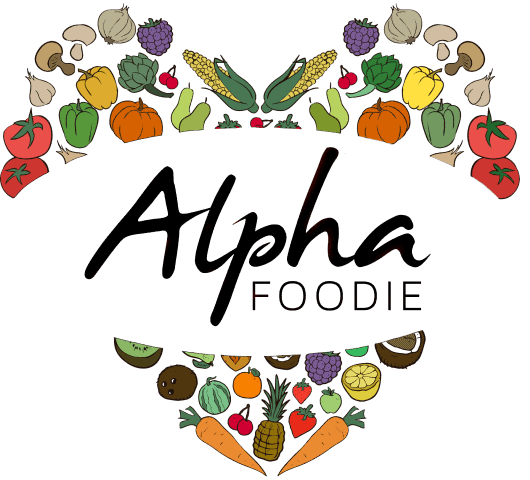
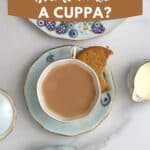
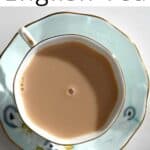
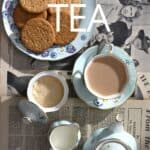
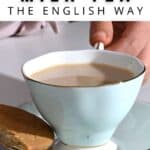
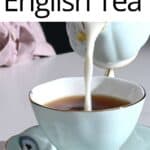
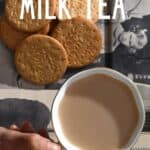
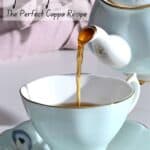








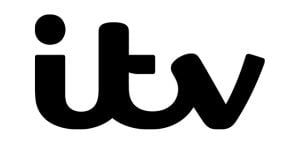
I have been raised on Tea, as my grandmother was direct from Scotland and I am only 2nd Generation American. My grandfather was Irish and had passed before I was born but, also loved his Irish Tea according to my parents.
So, I made it my mission to go to Great Britain in an attempt to know my personal history straight from the homeland. I made my first to Ireland trip to all of Ireland and a three month trip all around Great Britain, including Wales while doing B&B.
The second trip was how I discovered Assam Tea, and since, rarely drink anything else. I also learned that my parents were making a “good cuppa” Tea as they were taught by my Grandmother… Like the Scots!
Which is basically the British way. Thanks for this piece, you get an A for educating Americans on the Sweetest part of an English Tea. But, skip the biscuits and serve Scones!
What a beautiful story, Kathleen! Thank you so much for sharing it! I love how your tea journey connects generations and continents. I’m glad to hear you enjoyed the post, and yes to scones! <3
Ok, but my milk is usually cold, so I microwave just the milk for some 30 seconds before adding it to the tea. Otherwise my tea will get a bit too cold for my taste. Heating the milk in the stove would be better, but would also make a quick tea not quick anymore. I am from Brazil, but had a very good Australian friend here that got me into drinking English tea. Then I lived in Australia for 5 years and got even more addicted to it. Here in Brazil people drink more MATE tea (in many different ways).
Hi Gustavo! Totally get it. Microwaving the milk is a quick fix, especially when you’re in a hurry. Just add it to the tea right after, and you’re good to go! Enjoy your tea time!
I had to laugh and ask if you really lived in the UK but then you did mentioned that eveyone tells you to add the milk first. Ok… I believe you. I disagree with you on adding the milk. Do it first. I lived in the UK a number of years working for a British firm. At my first meeting for a committee, my boss asked me to pour the tea. I got puzzled looks when I asked who wanted milk… all said yes. As I poured the first cup and started to add milk, my boss sprinted across the room, dumped the cups tea and informed me that tea is added to milk. I learned….. There is a taste difference. For common Brits, tea is always added to milk. I you live there, you will laugh as Brits lve correcting us Yanks…. Now here is the kicker… if you are serving a member of the Royal family, add the milk to the tea. It is very bizar. And yes, I met the Duke of Glouster, at a paper presentation and the at my office. He is/was an engineer, I’m an engineer that was working with historic buildings. I served him tea, poured it wrong, the we had a great conversation about British and American differences.
Thank you for your feedback, Geoff! Very interesting! 🙂
Thank you. I pour boiling water over tea leaves and my tea was bitter. Now I realized it.
Thanks for your comment, Aneta. Glad this is helping 🙂